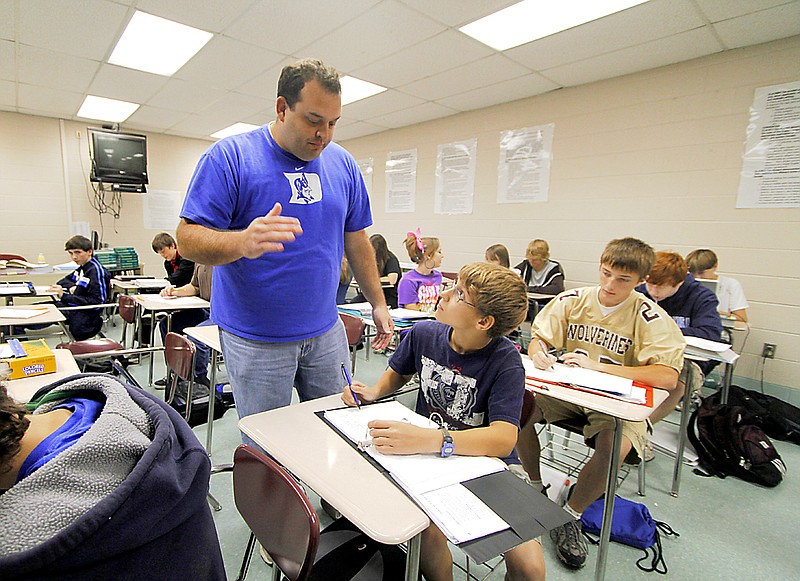TRENTON, Ga. - When Dade County High School kicked off its new school year, its schedule was a partial return to the past.
Three days a week, Dade High School students have seven 53-minute class periods. On Wednesday and Thursdays, students have four 90-minute blocks, with the seven classes split over two days.
Students and teachers say shorter classes are more engaging, and both groups like the variety of a seven-class day.
"It's a lot better because you're not sitting in class for long periods of time, losing attention," said senior Courtlyn Harris, 17. "You get what you have to get done, done.
Principal Josh Ingle said the schedule switch helps the cash-strapped system save money. Fewer teachers are needed on the seven-period schedule to teach the same number of students, Josh Ingle said.
But a major benefit is that a seven-period day closes the instruction gap that block scheduling can create in core classes such as math and English, he said.
Students on a block schedule could have a math course the first semester one year, but then might not have the next math course until spring semester of the following year, he said.
Instructional-time requirements of a federal School Improvement Grant awarded to the school last year forced officials to mix traditional periods and blocks to get "the best of both worlds," Ingle said.
The reasoning is that year-long, shorter classes expose students to subject material over more time, while the two block days give classes such as science and biology time for labs, projects and activities, he said.
Standardized testing this spring will establish a baseline of scores for future comparison to help track the impact of the switch, he said.
Teachers Alan Morris and Lori Wallin said the schedule change is challenging but the increased enthusiasm among students is worth the effort.
"I think they retain more because there are shorter segments of information given to them on a frequent basis," said Wallin, a health care sciences teacher with 10 years in the classroom.
Morris, who teaches honors and sophomore English, said the shorter periods seem "more natural."
"When you only have them for 53 minutes or so, you're able to get a lot more accomplished" because students "get into" the material more, Morris said.
Under the new schedule, teachers don't have as much time to grade papers or plan while at school, but the extra student engagement is worth it, he said.
Senior Brittany Townsell, 16, is in dual-enrollment college courses at the high school. Her schedule is even more mixed to allow for her 90-minute college courses on traditional days, she said.
"Actually, I hate going to 'block' because it is a long class, but I love the seven periods," she said with a laugh.
She said the mixed schedule hasn't created any more work for her because teachers try to accommodate students.
Townsell and Harris said they remember more of what they learn because they are in class more often under the seven-period day.
Senior Nathan McDaniel, who also is dual-enrolled in an early college schedule, agreed that retention is better with shorter classes.
He said he expects to perform better on end-of-course testing because it seems like he will have been in class longer overall.
"We'll see how it plays out," he said.
The three seniors said their workload is not significantly changed, but McDaniel noted that one drawback to the seven-period day is in his backpack.
"Your load, as far as having to carry books and stuff, is a lot larger with seven classes," he said.
